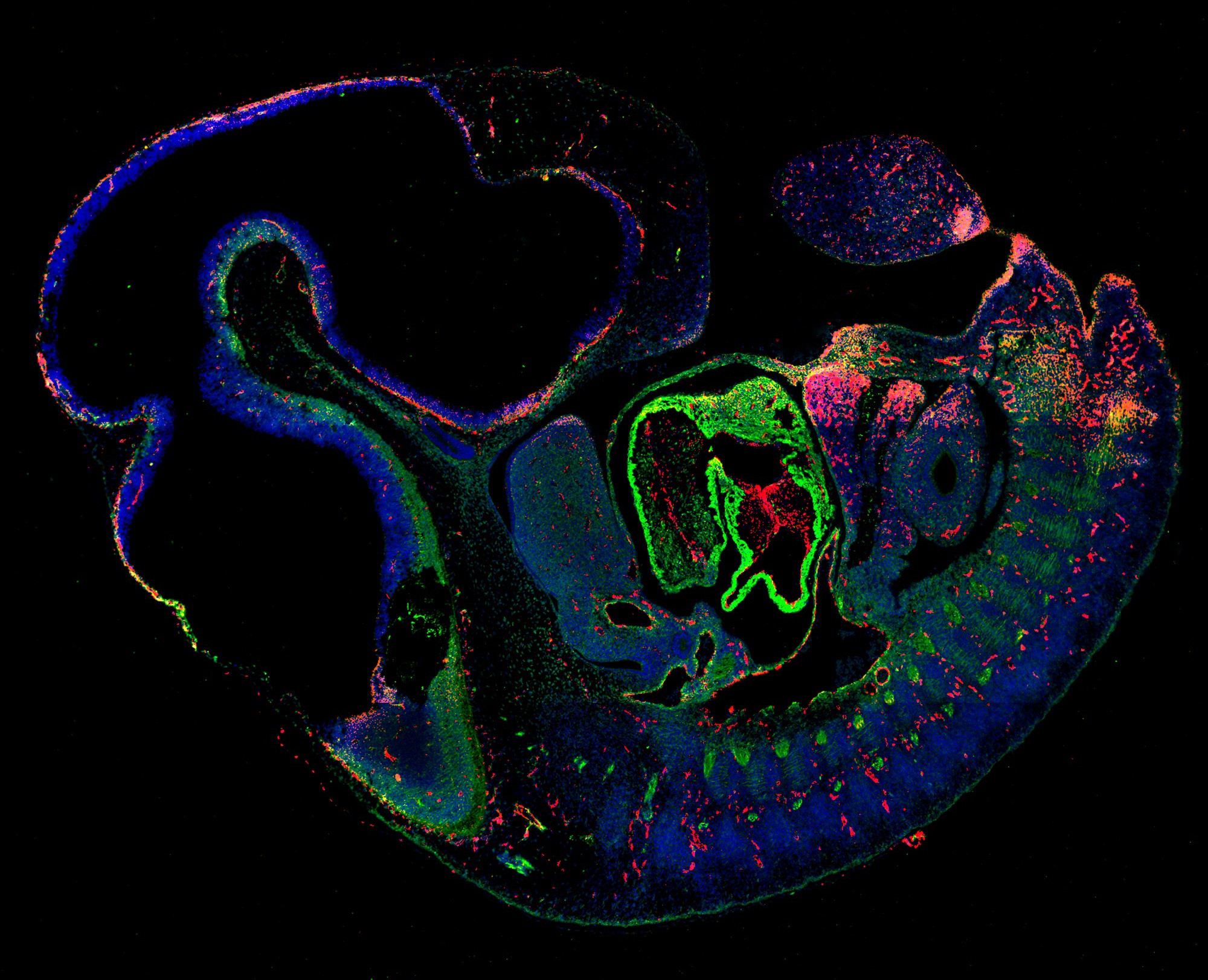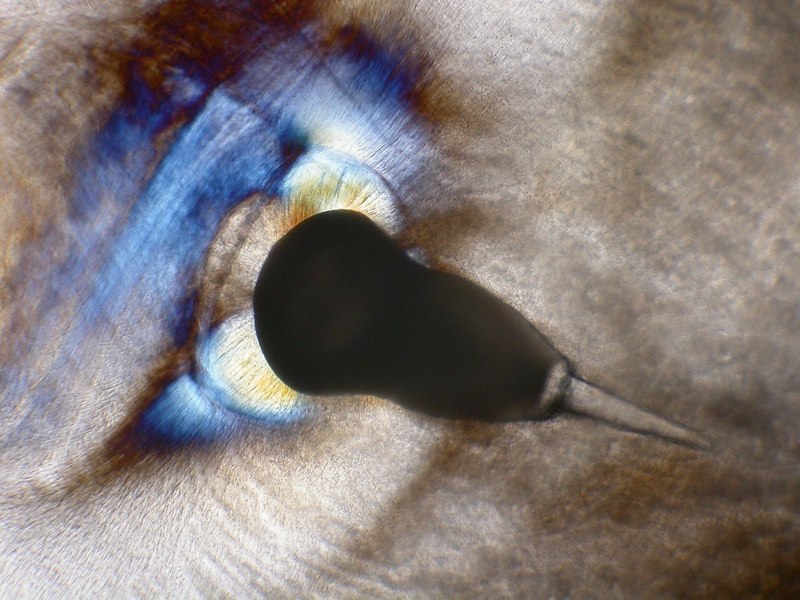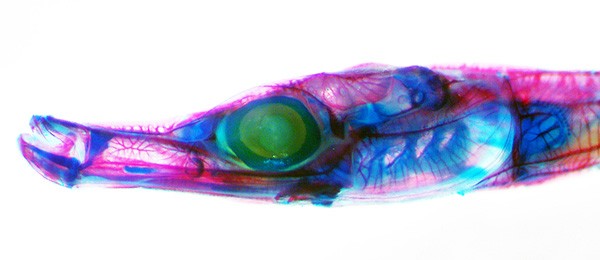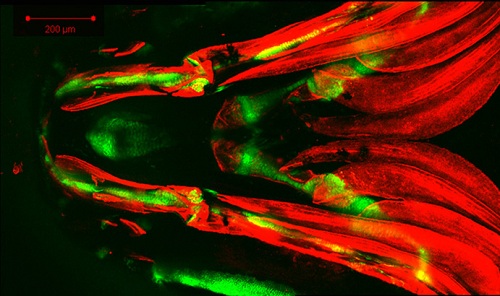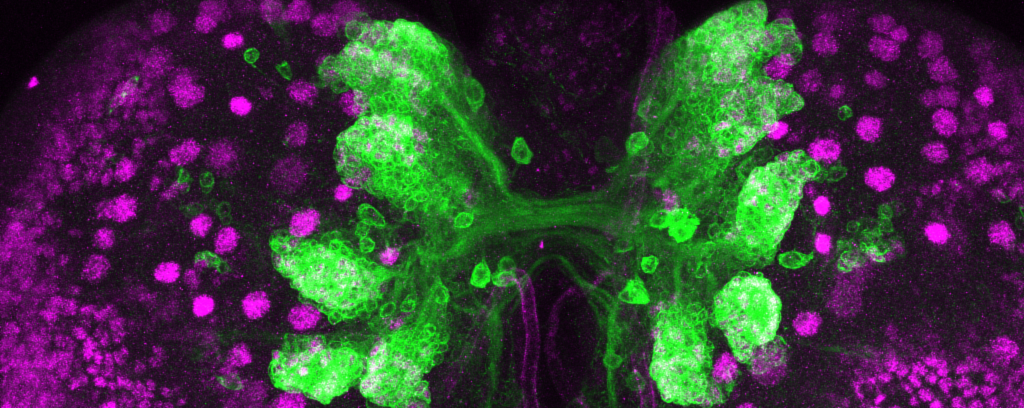The University of Oregon has a rich tradition of innovative and interdisciplinary developmental biology research. Diverse and collaborative efforts range from molecular and cellular mechanisms of development to developmental neuroscience, evolution & development, developmental networks & genomics, organogenesis, disease modeling, and regenerative biology. Labs use model organisms including yeast, Neurospora, nematode worms, fruit flies, zebrafish, and mice. Notably, the UO is the birthplace of zebrafish developmental genetics. The Developmental Biology graduate training program (DBTP) prepares leaders of the next generation of rigorous, creative, and experimentally talented developmental biologists. Trainees develop the skills to lead research programs of their own, communicate discoveries to other scientists and the public, and teach future scientists. Nearly all DBTP-affiliated trainees have pursued successful scientific careers, including many who now lead their own research groups. See outcomes. Individualized research training towards a Ph.D. degree within one of 22 diverse laboratories is the core of the program. Participating labs are in the Institute of Molecular Biology, Institute of Neuroscience, Institute of Ecology & Evolution, and the Oregon Institute of Marine Biology. Trainees’ thesis research is built upon a recently revamped curricular foundation. Required graduate-level courses are Advanced Genetics and Developmental Genetics and one of Evolution of Development, Developmental Neurobiology, or Genomics Approaches. Additionally, trainees complete Advanced Biological Statistics in recognition of the integral nature of quantitative approaches to modern developmental biology research. Research and coursework is enriched by a variety of broadening experiences: first year rotations, teaching, Institute retreats, annual student research reports, interactions with visiting speakers, and the Developmental & Cell Biology journal club. Career developmental activities support students interested in non-academic careers. A unique highlight is the annual student-organized Developmental Biology symposium, where the trainees host a group of leading scientists who share their research on a topic of the students’ choosing. Interested UO graduate students apply for DBTP-associated financial support, largely provided by a NIH Developmental Biology Training Grant (DTG), at the end of their first year after identifying a thesis lab and project. Students typically are appointed for two years, but must apply for continuing support having demonstrated outstanding progress. Application instructions are provided to eligible students in Spring term. Prospective students should visit the Institute websites to learn how to apply to UO Ph.D. programs. Financial support for the Developmental Biology program is provided by the National Institute of Child Health and Human Development (T32HD007348-35) and the University of Oregon. The DBTP commits to fostering STEM careers for individuals of all backgrounds and statuses through respectful, engaged, and rigorous Ph.D. training. We embrace the principle that resourceful, creative, and bold science is enlightened by all perspectives and enhanced by expanding the talent pool pursuing research careers. We attest to DBTP’s collective will and responsibility to enable everyone to flourish in research careers. Towards these goals, we lead and join universal activities enabling students of all backgrounds to pursue life science Ph.Ds., recruit them into our program, and nurture trainees’ progress during and after Ph.D. training.
